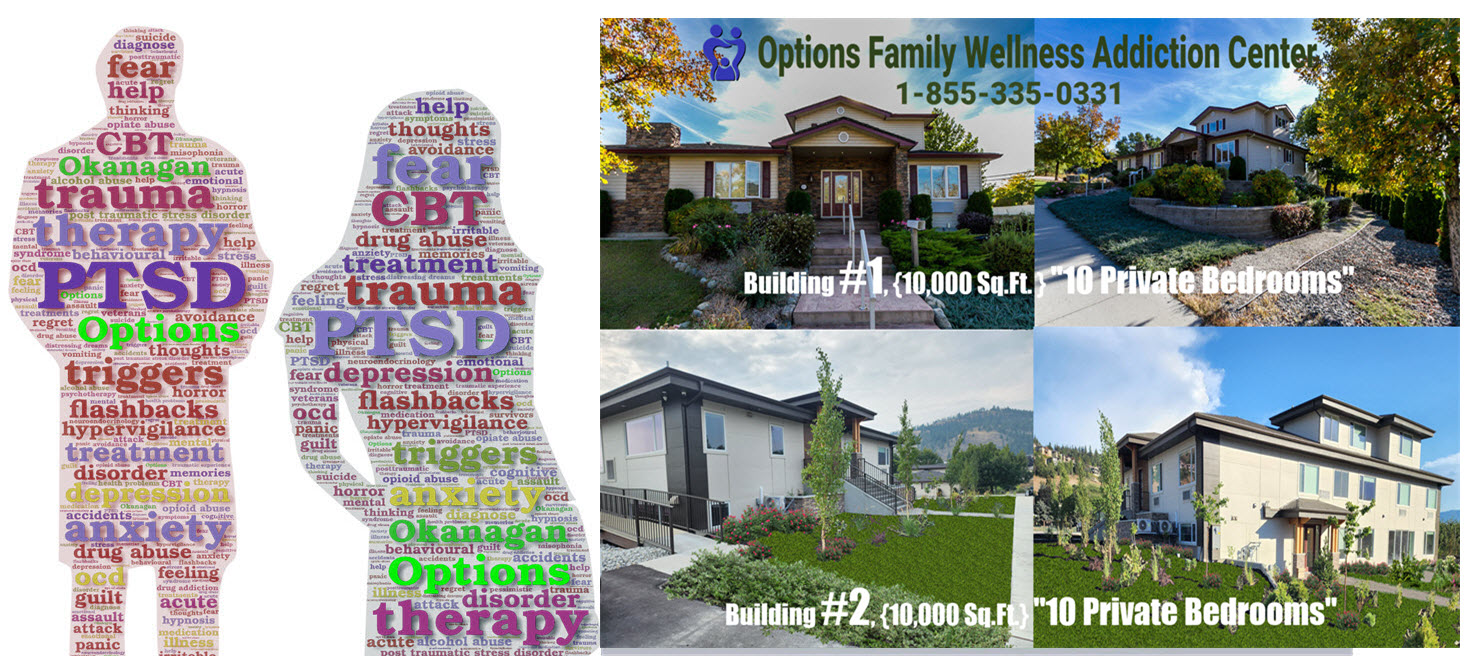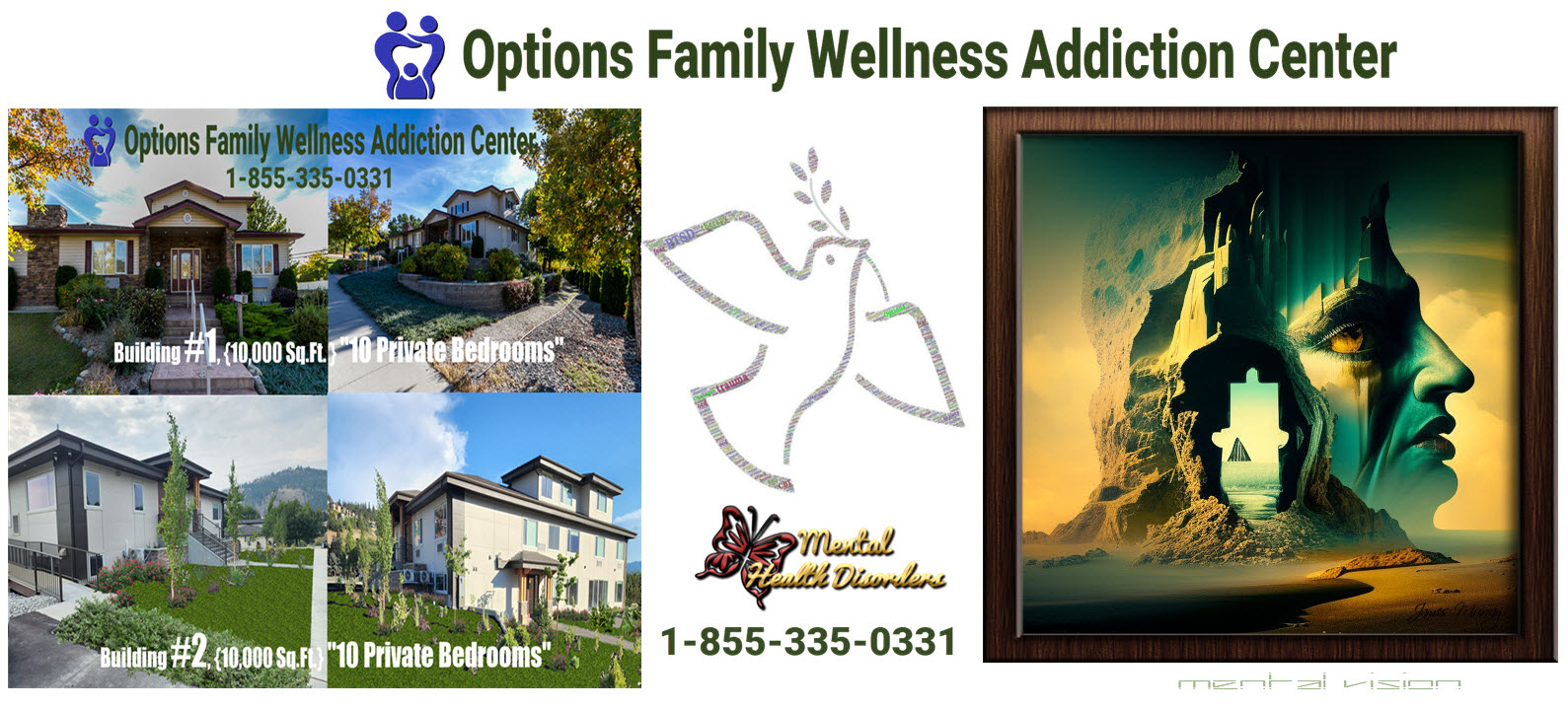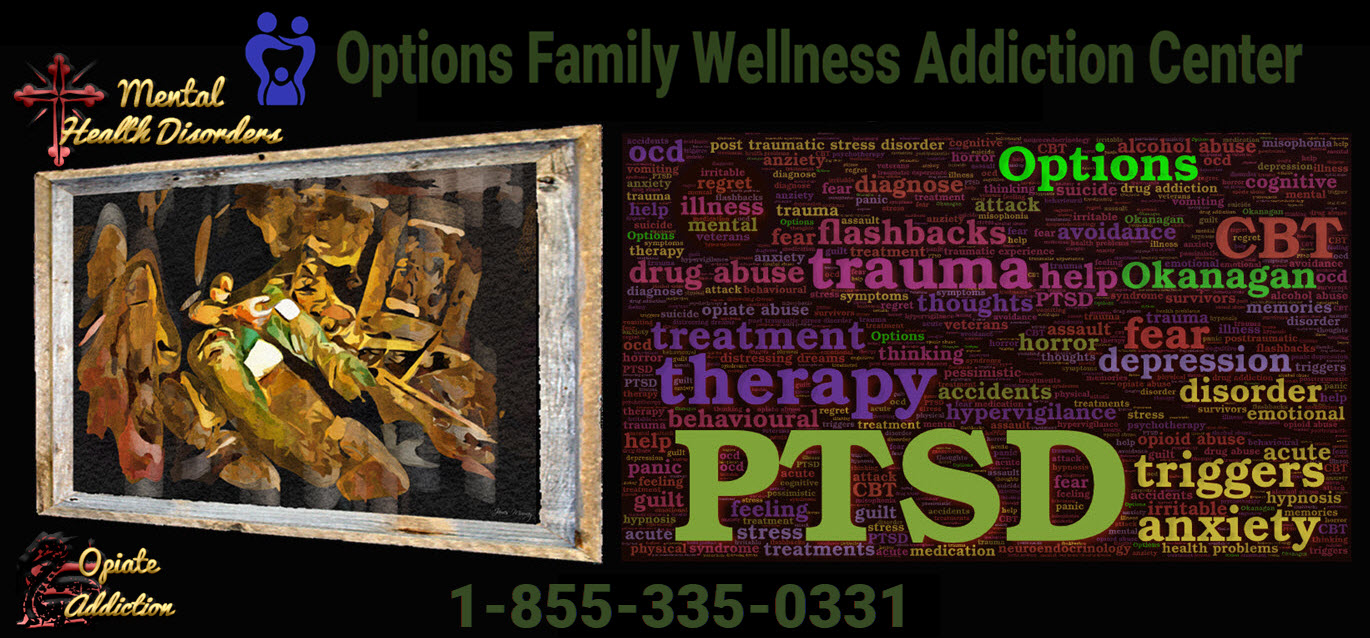The Surprising Link Between Culture and Mental Health: What You Need to Know – Opioid addiction treatment centers in Alberta and British Columbia – Options Family Wellness Addiction Center in Kelowna, British Columbia treating drug, prescription drugs, opioids, opiates, fentanyl, heroin, and alcohol addiction and recovery.
Drug Addiction Treatment Center In BC
Unlocking the Secrets to Mental Wellness: A Comprehensive Guide
Introduction: The Importance of Mental Health
Mental health plays a crucial role in an individual’s overall well-being. It refers to a state or condition where a person experiences a sense of well-being, can live a fulfilling life in line with their available resources, and is resilient to the stresses of life. Mental wellness also enables individuals to be productive and contribute positively to their communities.
Mental Health Disorder Programs In BC
Defining Mental Wellness
Mental wellness can be defined as the absence of mental disorders or problems. A person who does not display diagnosable behaviors that could qualify as a mental disorder is considered mentally healthy. However, when these behaviors become disruptive and lead to mental disorders such as obsessive-compulsive disorder (OCD), a diagnosis may be necessary.
Mental wellness can also be viewed as a positive element of an individual’s personality that enhances their mental health regardless of a diagnosable mental disorder. This definition encompasses an individual’s ability to live life to the fullest, respond well to their environment through the conscious or unconscious use of coping mechanisms, and balance emotional and psychological well-being in relation to a constant flow of experiences.
Cultural Differences in Mental Health
It is essential to note that mental health definitions vary across cultures. What is deemed mentally healthy or acceptable behavior in one culture may be considered eccentric in another. For example, cannibalistic behavior in some remote tribes is viewed as a religious practice, but in most urbanized countries, it is considered barbaric or insane.
Manifestations of Mental Health Disorders
Abnormalities in mental health can lead to various problems with different manifestations. Some individuals with mental illnesses exhibit aggressive behaviors, while others are withdrawn and lack social interest. Each type of disorder has its own signs and symptoms, and diagnosis and treatment vary depending on the nature of the mental health problem.
Factors that Disrupt Mental Health
Several factors can disrupt mental health, including environment or upbringing, biological makeup, pre-programmed instructions in genes, medical disorders, traumatic experiences such as loss and abuse, and substance abuse. While one factor may be more dominant than the others, all of these contribute to the development of the majority of mental health disorders. In some cases, a single factor may be sufficient to trigger the disorder, but most disorders require an accumulation of experiences that constantly challenge the well-being of an individual.
Strategies for Preserving Mental Health
Preserving mental health relies heavily on an individual’s ability to blend in with their environment and manage its stresses, achieve a good internal balance in their personality that provides a stable character, and create a positive perspective that limits the damage of negative experiences. For some people, a supportive system, such as a sympathetic family or a strong social group, may work well to safeguard mental health.
Conclusion: Prioritizing Mental Health
In the end, mental health is a critical component of an individual’s overall well-being. Understanding mental wellness and the factors that can disrupt it can help individuals take proactive steps towards safeguarding their mental health. It is essential to prioritize mental health and seek professional help when needed to maintain optimal mental wellness.
There are many authors and books that cover topics related to mental health and wellness. Here are a few examples:
“An Unquiet Mind: A Memoir of Moods and Madness” by Kay Redfield Jamison – In this memoir, Kay Redfield Jamison shares her personal experience with bipolar disorder and discusses the impact of mental illness on her life.
“Lost Connections: Uncovering the Real Causes of Depression – and the Unexpected Solutions” by Johann Hari – This book explores the root causes of depression and anxiety, including factors such as disconnection from others, trauma, and socioeconomic inequality.
“The Body Keeps the Score: Brain, Mind, and Body in the Healing of Trauma” by Bessel van der Kolk – This book delves into the physical and emotional effects of trauma on the brain and body, and discusses various treatment approaches for healing.
“The Power of Now: A Guide to Spiritual Enlightenment” by Eckhart Tolle – While not specifically focused on mental health, this book emphasizes the importance of staying present in the moment and not dwelling on past regrets or future worries, which can help to reduce anxiety and improve overall well-being.
“Mindfulness-Based Cognitive Therapy for Depression” by Zindel Segal, John Teasdale, and Mark Williams – This book outlines a mindfulness-based approach to treating depression that emphasizes cultivating awareness of one’s thoughts and emotions in the present moment.
These are just a few examples of the many books and authors who have contributed to the conversation around mental health and wellness.
FAQ
Q: What is mental health?
A: Mental health refers to a person’s overall psychological and emotional well-being. It encompasses a wide range of factors, including an individual’s ability to cope with stress, maintain positive relationships, and live a fulfilling life.
Q: What is the difference between mental health and mental illness?
A: Mental health refers to a person’s overall well-being, while mental illness refers to specific conditions or disorders that can affect a person’s mental health. Not everyone with mental health issues has a diagnosable mental illness, and not everyone with a mental illness has poor mental health.
Q: How can I improve my mental health?
A: There are many strategies for improving mental health, including practicing self-care, seeking professional help if needed, maintaining positive relationships, staying physically active, and managing stress through relaxation techniques or mindfulness practices.
Q: Can mental health vary across different cultures?
A: Yes, mental health can be viewed differently across different cultures. What is considered normal or acceptable behavior in one culture may be seen as abnormal or problematic in another. It’s important to understand cultural differences in mental health to avoid stigmatizing or pathologizing certain behaviors.
Q: What are some common factors that can disrupt mental health?
A: There are many factors that can disrupt mental health, including environmental stressors, genetics, medical conditions, traumatic experiences, and substance abuse. These factors can interact in complex ways and vary in their impact on individual mental health.
Q: How can I support someone with mental health issues?
A: Supporting someone with mental health issues involves providing empathy, understanding, and a listening ear. It’s important to avoid judgment and provide non-judgmental support, while also encouraging the person to seek professional help if needed.
Mental health is more than just a phrase,
It’s the foundation of our well-being in so many ways.
It’s the ability to cope with stress and thrive,
To feel fulfilled and truly alive.
It’s not just about avoiding a diagnosis,
But about living life with balance and focus.
It’s about having the tools to handle what comes our way,
And being able to navigate through each and every day.
We all have struggles, we all have pain,
But mental health can help us maintain.
With self-care, support, and love in our lives,
We can keep our mental health strong and thrive.
So let’s spread awareness and break down the stigma,
Let’s show empathy and support to those who need us.
For mental health matters, it’s a vital part of who we are,
And with understanding and care, we can reach for the stars.
It’s okay to reach out for help,
To seek support when we feel overwhelmed.
There’s no shame in asking for a hand,
We all need support to help us stand.
So let’s create a world where mental health,
Is seen as a priority for everyone’s wealth.
Where resources and care are readily available,
And support is offered, unconditionally valuable.
For mental health matters, it’s a journey we all share,
And with kindness and compassion, we can show we care.
Let’s lift each other up, and hold space for those in need,
And together, we can plant the seeds of love and empathy.
Options Opiate and Alcohol Treatment Centers in Kelowna, British Columbia – Men and Women are recovering and healing from Alcohol and Drug Abuse at our addiction recovery center here in the Okanagan right now.
Our unique and distinctive Opiate Drug and Alcohol addiction recovery treatment program allow men and women to come in from Calgary as well as Edmonton as we offer airport pickup.
Numerous clients come to us from Vancouver, Calgary, and Edmonton and other locations in Alberta and even other provinces for Opiate addiction treatment, heroin drug treatment, many other drugs, and alcohol addictions for rehabilitation because of the uniqueness of our treatment center.
Options Drug and Opiate Addiction Treatment Center
551 Sherrydale Crescent, Kelowna, British Columbia, V1V 2E6
Toll-Free Phone Number: 1-855-335-0331




